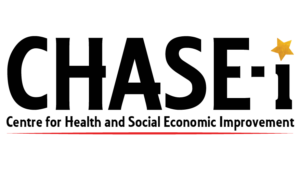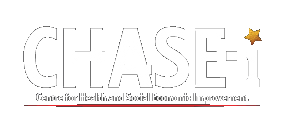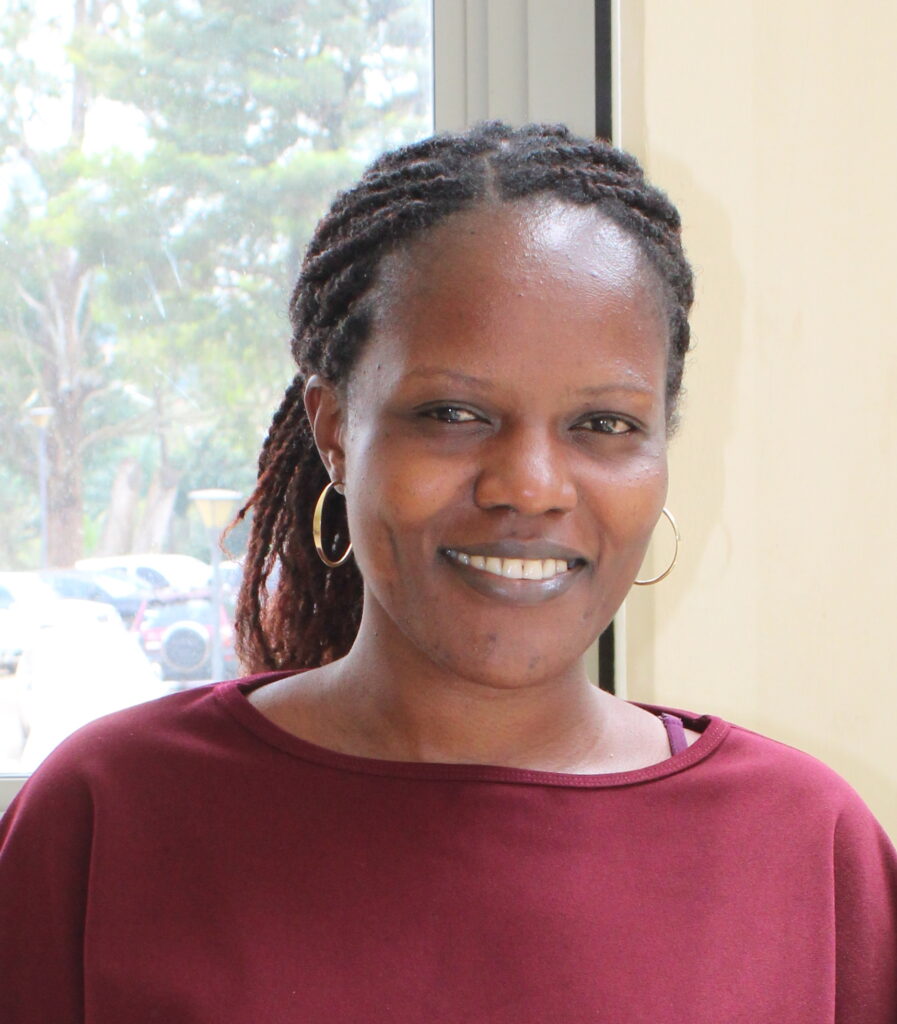How the REFLECT Study Partnership is literary changing our organisation’s strategic and operational direction

Ellen Bajenja
- November 18, 2021
I want to say that as ACORD Uganda, it was a pleasure for us to be part of this study because it was reviving the ‘R’ in our ACORD name. ACORD stands for Agency for Cooperation and Research in Development. During the evaluation of our strategic plan that has just recently ended, one of the areas we performed badly was that ‘R’, and we were lacking that towards the end, we needed to strengthen it. Then the REFLECT study came in and fast forward it was a demonstration that we delivered on the ‘R’. It was a timely study because it was answering several questions in the work that we are doing as implementers of responses in the humanitarian context and at the time when COVID-19 was really challenging for us. It is truly a pleasure to be have been part of this and I should say that it has already spoken to our successor strategic plan. It has encouraged us to move on and strengthen the ‘R’ and I am hoping that we will have a better future moving forward. Working on this with Makerere University, the Ministry of Health and our other partners was such a pleasure, there was so much to learn and we have started making interventions guided by this research.
I would like to thank Makerere University for considering us as partners for this study because it came at a time when ACORD was transitioning. ACORD was originally international and we are now national with an able board. We are trying to steer ourselves to be known nationally and beyond; so, the study came in and did the job probono. We are now leveraging what is online and many people are beginning to know about us. We had a recent organizational capacity assessment by one of our development partners and one of the areas they were assessing was adaptation to change and this was one of the areas in mind -a quick research informing interventions that are already rolled out. That was a clear demonstration of adaptability.
One other important thing I can say is that this study informed our re-programming. Besides writing concept papers for funding, we had to re-look at many of our projects as we were building contingency plan for ongoing projects. We looked at many of these areas mentioned in the Alphabet. Of course, there are some areas like violence which is very challenging and requires a lot of advocacy using this evidence but we have still tried to use the outcomes like the women and children. And our programmes are now being re-shaped based on this study that we ourselves were involved in.
Finally, I would like to congratulate the study team. It is amazing that a short time can create all these products and so I would like to congratulate the team behind all this and the beauty is that most of these are coming from different institutions. I like the idea that all the partners had the time to think through beyond just the major publication of the outcomes of the study. It has built research thinking beyond just the study which is that multisectoral collaboration that has brought out other types of researchers that are not traditional. For example a lawyer and policy expert in Ministry of Health and a WASH engineer as a researcher – our own Dunstan here has written about the WASH status update at all study sites, it is a great achievement! I think that this is even a separate documentation of information as a lesson learned where you turned adversity into an ingredient that can help you reprogram and address a number of areas.
As we were discussing all this, I realized that the COVID Alphabet is a menu for further research because I was looking at the letters and thinking about so many things that can come out of one letter. I remember we were struggling around the results of high knowledge and the low compliance – could it be enabling factors not in place like distribution of face masks? But the Alphabet shows that mask distribution is not everywhere but even for those who received, there are issues of utilization, disposal and people reusing masks so I think that the alphabet has provided an ingredient for so many research areas that need to be focused on by us implementers. This has come out clearly and beautifully.
Given the conditions in which we conducted this study, we performed very well. Although there could be some areas to improve, I think it was great overall. Thanks to the study team for investing time and resources in ensuring that you would bring back information to the community, to the study sites. And to arrange such a meeting for all of us partners to come together and reflect on the process. I would also like to thank to funders Elrha who made it possible. It had been a pleasure and it will be an honor to continue partnering together on research as we, implementing partners, improve our programmes so that they continue to be truly grounded in research, informed by the evidence, especially our own local evidence.
As implementers in health and other sectors, we are now at the stage of opening up formal partnerships with line ministries and key stakeholders. So one of the other areas we would like to see is to have a memorandum of understanding with the Ministry of Health. I am sure that since we’ve already partnered with them and in addition to the programmes we are implementing, that goal will not be difficult to achieve.
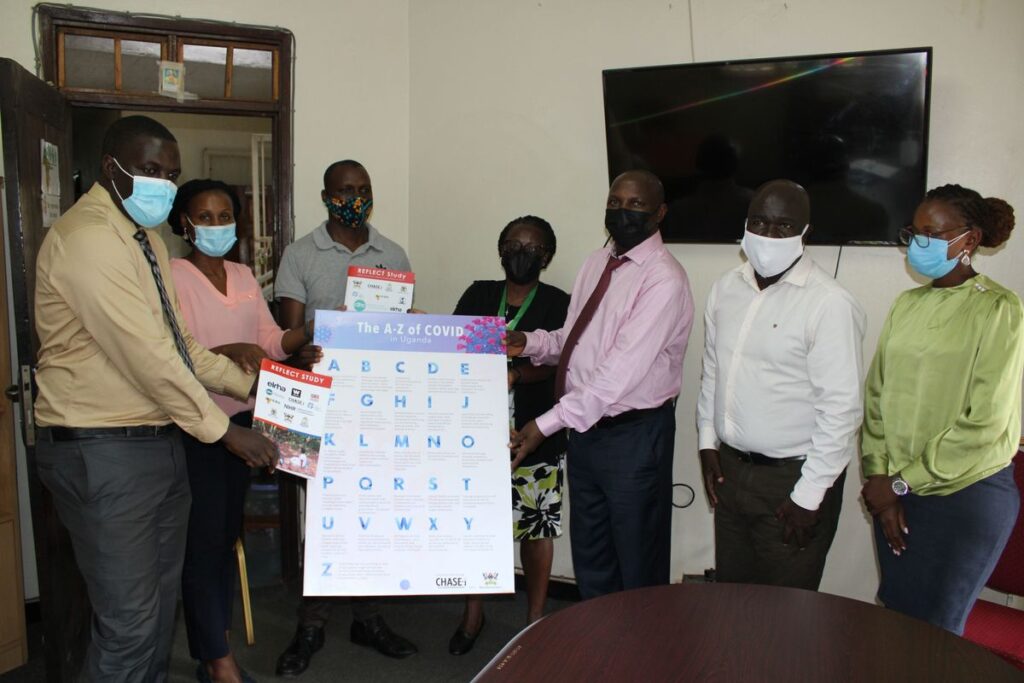
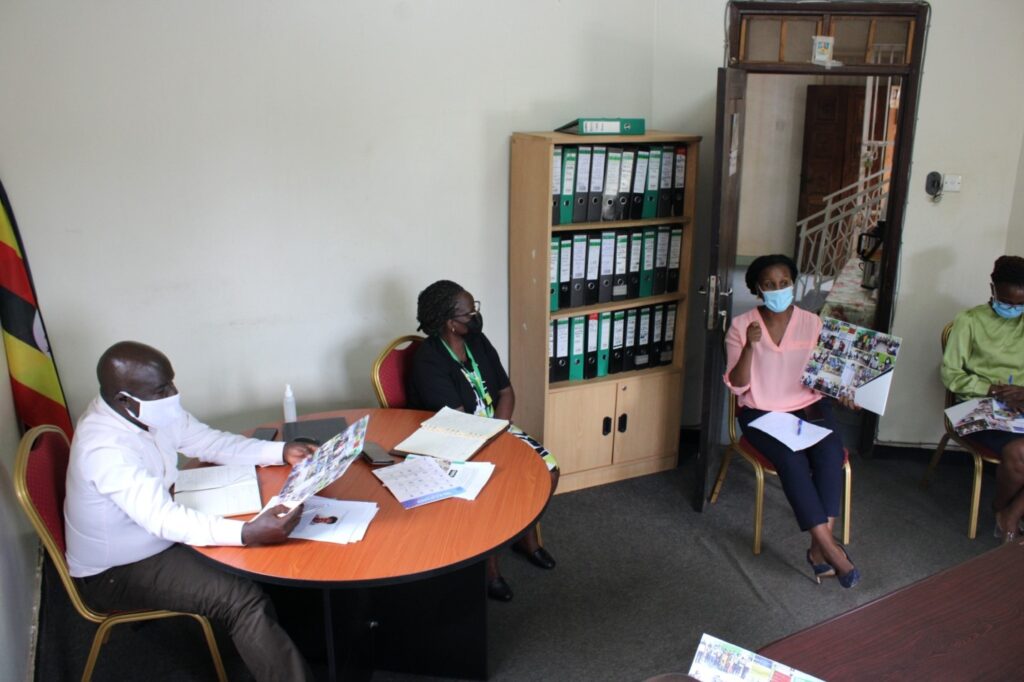
REFLECT study PI Dr Gloria Seruwagi (centre) ACORD staff. L-R Mr. Dunstan Ddamulira (Programmes Manager), Ellen Bajenja (Country Diretor) and Shivan Nyamiwiza (Social Worker)
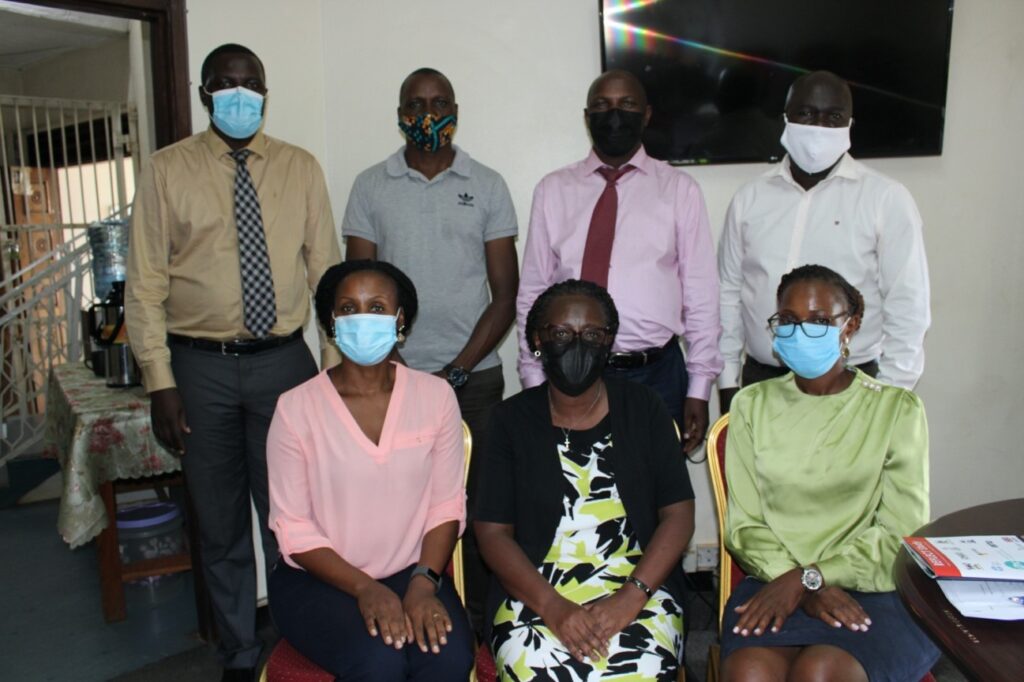
Study partners after an engagement session. (L-R sitting ) Dr Gloria Seruwagi (PI), Ms. Ellen Bajenja (Country Director -ACORD), Shivan Nyamwiza (Social Worker, ACORD). R-L standing) Dunstan Ddamulira (Programmes Manager, ACORD and Co-Investigator REFLECT study), Dr Denis Muhangi (Co-Investigator), John Mary Ssekatte (National Asssociation of Social Workers of Uganda)
About the Author
Ellen Bajenja is the Country Director of ACORD Uganda and she was very actively involved in the REFLECT study right from inception.
